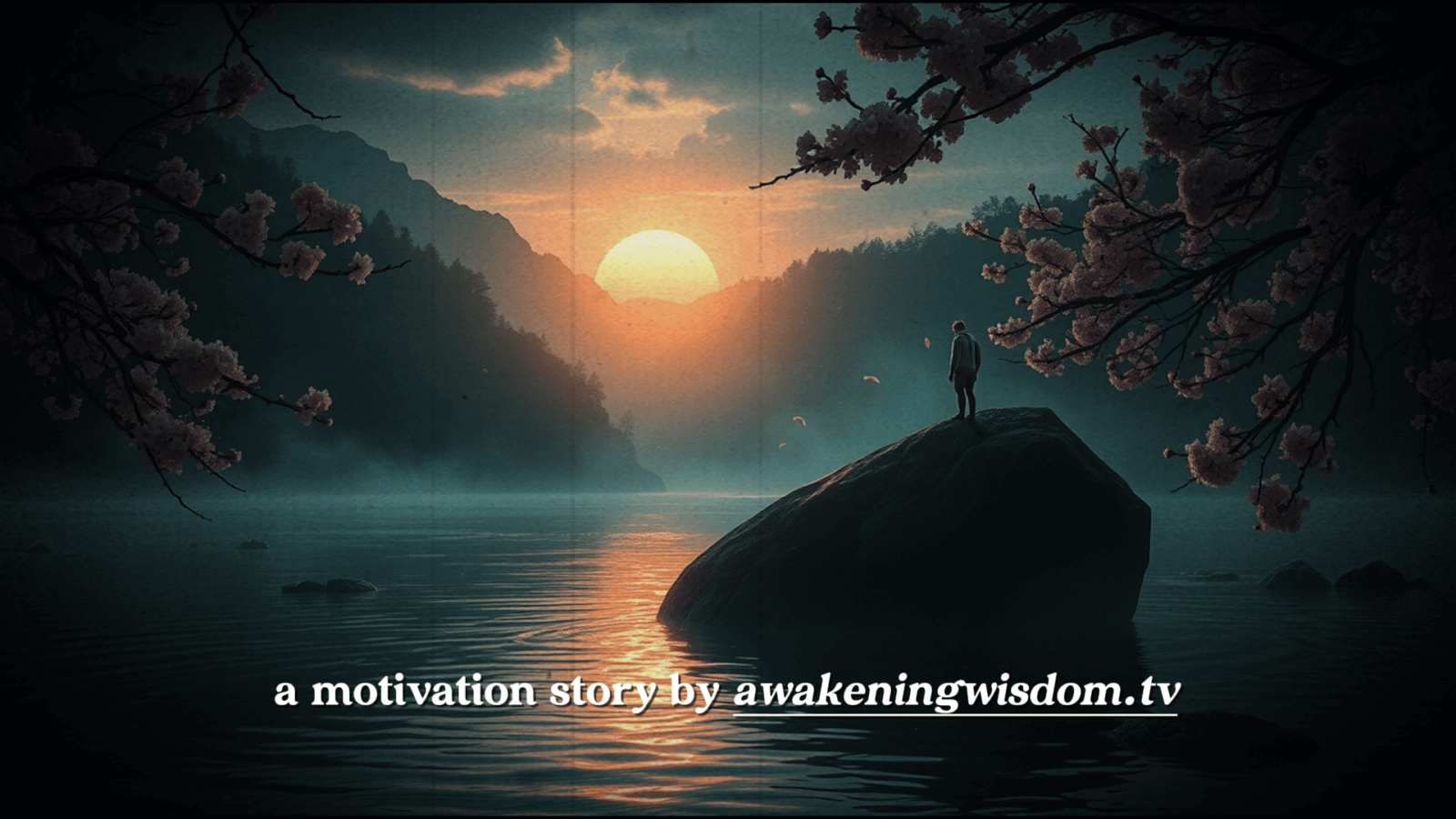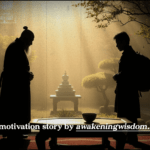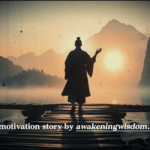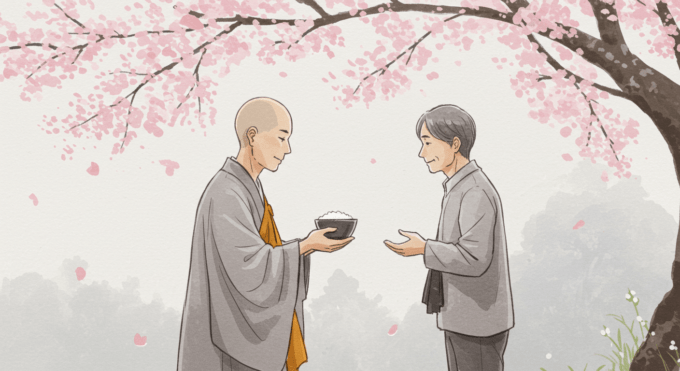Happiness often feels just out of reach, but what if the problem isn’t life—but our attachments? This Zen story reveals why clinging to outcomes causes suffering and how to find true peace.
The Man Who Wanted Control
There was once a man named Taro who believed that happiness came from control.
He was successful, disciplined, and intelligent. Every decision he made was carefully planned, every action calculated.
He believed that if he worked hard enough, planned well enough, and made no mistakes, life would reward him.
But despite his efforts, life did not always go as planned.
•The job promotion he worked for was given to someone else.
•The woman he loved did not love him back.
•The investment he thought was safe collapsed overnight.
Each time something didn’t go his way, Taro suffered deeply.
“Why does this happen?” he would ask. “I did everything right.”
But no matter how much he tried to control life, it seemed that life refused to be controlled.
Frustrated and tired, he decided to seek the wisdom of a Zen master.
The Zen Master’s Lesson
Taro traveled far into the mountains to find a highly respected Zen master.
“Master,” he said, “I have spent my life working hard, making careful decisions, and striving for success. But no matter what I do, life refuses to give me what I want. Why does this happen?”
The Zen master listened quietly, then smiled.
“Come with me,” he said.
They walked to the edge of a fast-flowing river.
The Zen master picked up a large rock and handed it to Taro.
“Hold this rock tightly,” the master said.
Taro did as he was told.
“Now, step into the river.”
Taro hesitated but obeyed. The moment he stepped in, the strong current pulled him downward. The heavy rock in his hands made it even harder to stay above water.
“Master!” Taro gasped, struggling. “The rock is too heavy! I will drown!”
The Zen master simply said:
“Let go.”
The Weight of Attachment
Taro’s instinct was to hold on tighter—because he had been taught to never give up.
But the more he held on, the more he sank.
Finally, in desperation, he released the rock.
Instantly, he floated back to the surface.
Taro caught his breath, looking at the master in shock.
The Zen master nodded.
“You see, Taro,” he said, “it is not the river that makes you suffer. It is not even the rock. It is your refusal to let go.”
Why We Suffer
As they sat by the riverbank, the Zen master continued.
“Life is like this river. It is always moving, always changing. You cannot control it. But you can control whether you suffer.”
“How?” Taro asked.
The Zen master smiled.
“Suffering happens when we attach ourselves to outcomes. We believe life must go a certain way. We hold on to expectations like you held on to that rock. But life does not obey our wishes. And when things do not happen as we want, we feel pain.”
“But if I don’t hold on,” Taro argued, “how will I get what I want?”
“Ah,” the master said, “that is the great misunderstanding. You can still work hard, love deeply, and pursue your dreams. But instead of demanding a certain result, learn to embrace whatever comes.”
“Let go of attachment, not effort.”
The Key to Inner Peace
Taro sat in silence, watching the river.
For years, he had clung tightly to outcomes—believing that happiness would only come if life matched his plans.
But now, he saw the truth.
Happiness is not found in control.
Peace is not found in forcing things to go our way.
Happiness is found in trusting the flow of life—just as a river does not resist the rocks in its path, but flows around them.
The Lesson: Flow, Don’t Force
The Zen master stood and gestured toward the river.
“The secret to happiness is simple, Taro. Flow with life, instead of fighting against it.”
“Hold your dreams gently, instead of gripping them tightly.”
“Move with change, instead of resisting it.”
“Let go of the rock.”
Taro closed his eyes, took a deep breath, and finally… let go.
And for the first time in years, he felt light, free, and at peace.
How to Apply This Wisdom in Your Life
Like Taro, we often attach our happiness to outcomes:
•“I will be happy when I get this job.”
•“I will be happy when I find love.”
•“I will be happy when I reach this goal.”
But happiness does not come from achieving a perfect life—it comes from accepting life as it is.
Here’s how to practice letting go of attachment:
1.Set goals, but detach from results.
•Work hard, but trust that whatever happens is meant to be.
2.Accept change, rather than resist it.
•Life will not always go as planned. Let it flow.
3.Enjoy the journey, not just the destination.
•If you only focus on results, you miss the beauty of the present.
4.Release control over others.
•You cannot force people to love you, stay with you, or act as you want.
5.Be open to life’s surprises.
•Sometimes, the things we didn’t plan lead to the greatest happiness.
Because in the end, the river will always flow—with or without our permission.
So the real question is:
Will you drown trying to control it?
Or will you let go and float?









Leave a comment